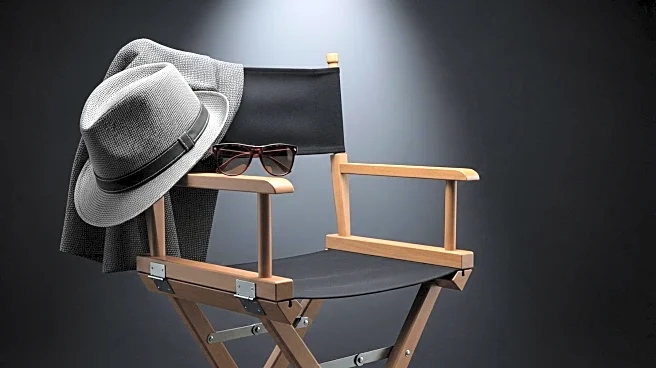What's Happening?
Robert Redford, the iconic actor known for his roles in films such as 'The Sting' and 'All the President's Men,' passed away at the age of 89. His death has prompted an outpouring of tributes from fellow actors and public figures. Meryl Streep, who starred alongside Redford in 'Out of Africa,' expressed her sorrow, calling him a 'lovely friend.' Barbra Streisand, who co-starred with Redford in 'The Way We Were,' shared fond memories of their time together. Jane Fonda, another frequent collaborator, highlighted Redford's impact on American culture and his advocacy for civil rights. President Trump also acknowledged Redford's contributions to the film industry, noting his significant influence during his peak years.
Why It's Important?
Robert Redford's passing marks the end of an era for Hollywood, as he was a pivotal figure in shaping the film industry during the 1970s and 1980s. His work not only entertained but also inspired social change, particularly through his support for independent filmmakers and environmental causes. Redford's legacy is significant for the arts community, as he founded the Sundance Institute, which has been instrumental in promoting independent cinema. His influence extends beyond entertainment, impacting cultural and political spheres through his advocacy and storytelling.
What's Next?
The Sundance Institute, founded by Redford, will continue to honor his legacy by supporting independent filmmakers. A special edition of '20/20' titled 'Robert Redford: The Life and Legacy of an American Icon' is scheduled to air, celebrating his contributions to cinema and activism. The film industry and fans worldwide will likely continue to reflect on Redford's impact, with potential tributes and retrospectives of his work.
Beyond the Headlines
Redford's commitment to activism and independent filmmaking has left a lasting impact on the industry, encouraging a new generation of filmmakers to pursue storytelling that challenges societal norms. His dedication to environmental causes and civil rights advocacy highlights the intersection of art and activism, demonstrating how cultural figures can influence public discourse and policy.










